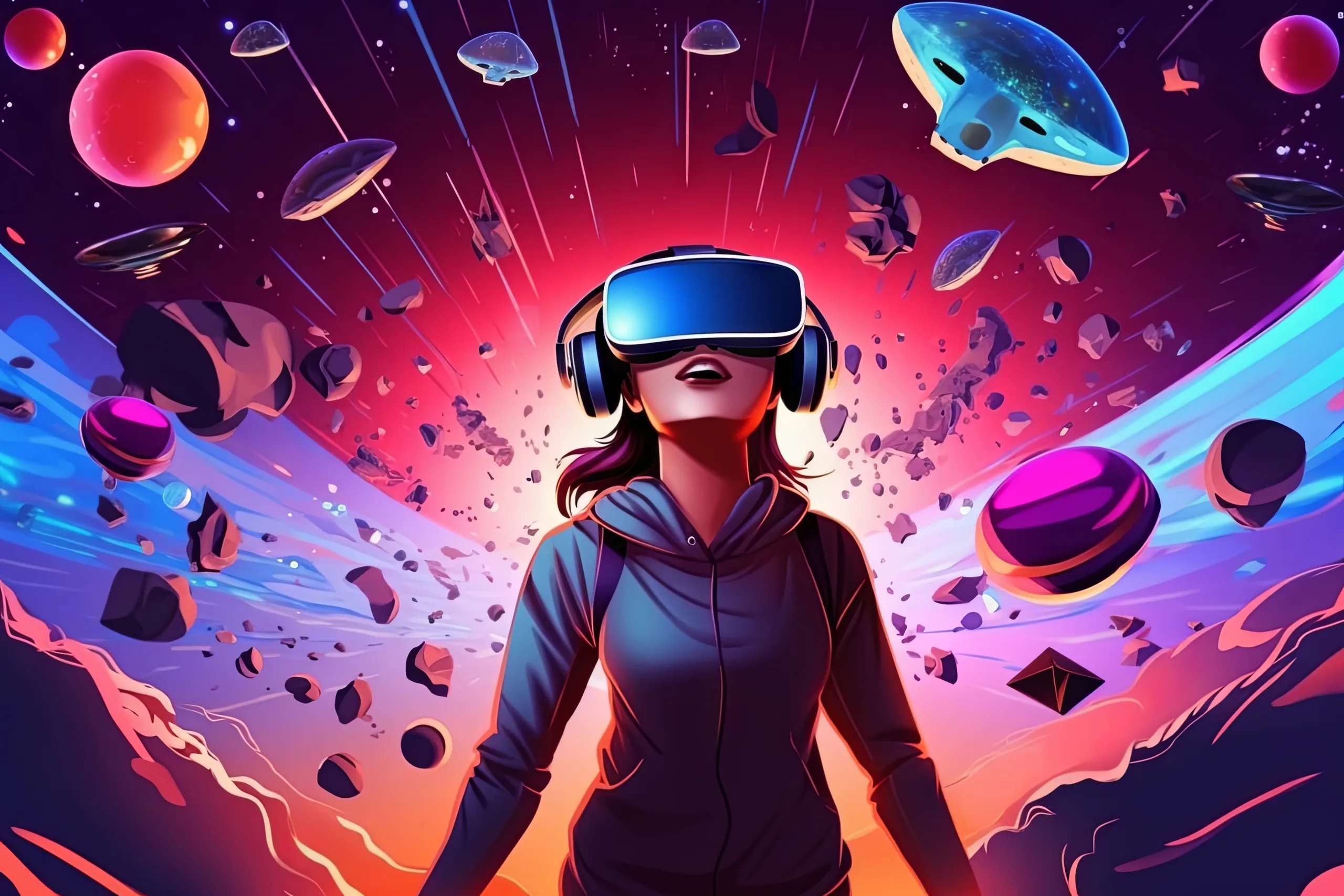- Introduction to Artificial Intelligence in Gaming
- What Are Artificial Intelligence Games?
- The Evolution of AI in Gaming History
- Why AI Games Matter for Students and Professionals
- Core Technologies Behind Artificial Intelligence Games
- Types of Artificial Intelligence Games
- Benefits of Artificial Intelligence Games
- Challenges in Developing AI Games
- Future Trends in Artificial Intelligence Games
- Case Studies of Artificial Intelligence Games
- How Students Can Benefit from AI Games
- How Professionals Can Use AI Games
- Comparing AI Games vs. Traditional Games
- Getting Started with Artificial Intelligence Games
- Frequently Asked Questions
- Conclusion: The Bright Future of Artificial Intelligence Games
Introduction to Artificial Intelligence in Gaming
Artificial Intelligence (AI) has transformed the way we interact with technology. From voice assistants like Siri and Alexa to self-driving cars, AI is shaping nearly every industry—and gaming is no exception. Artificial Intelligence games, also known as AI-driven games, represent a revolutionary shift in interactive entertainment and education. They are no longer just about playing for fun; they are now tools for learning, training, and skill development.
For students, these games offer a hands-on way to understand complex subjects through interactive learning. For professionals, they create realistic simulations that help in problem-solving, decision-making, and strategy building. As AI becomes more sophisticated, the line between gaming and real-world application continues to blur, creating exciting opportunities for both education and professional growth.
In this article, we’ll explore what artificial intelligence games are, their technologies, benefits, challenges, and future trends. We’ll also look at real-life examples, case studies, and recommendations for students and professionals who want to harness the power of AI games for personal and professional development.
What Are Artificial Intelligence Games?
Artificial Intelligence games are digital experiences where AI algorithms play a central role in gameplay, learning progression, and player interaction. Unlike traditional games, which often rely on pre-programmed logic and static difficulty levels, AI games adapt dynamically to the player’s actions.
For example, an AI game may analyze how quickly a student solves math puzzles and then adjust the difficulty accordingly. Similarly, a professional simulation game can respond to the choices made by a business manager, providing unique challenges that mirror real-world scenarios.
At their core, these games rely on adaptive learning algorithms, natural language understanding, and decision-making models to create experiences that are engaging, educational, and deeply immersive.
The Evolution of AI in Gaming History
The integration of AI in gaming is not new. Early examples date back to the 1950s when researchers created simple programs that could play chess. Over time, gaming AI evolved from predictable computer-controlled opponents to advanced systems capable of learning and adapting.
-
1970s–1980s: Classic arcade games like Pac-Man introduced the concept of enemy AI, with ghosts following distinct patterns.
-
1990s: Strategy games like Age of Empires and StarCraft used rule-based AI for enemy decision-making.
-
2000s: Games like The Sims introduced life-simulation AI, allowing characters to interact more naturally.
-
2010s–Present: AI is now driving personalization, storytelling, and real-time adaptation in games like Minecraft (with AI mods) and AI-powered educational platforms like Duolingo.
This progression shows how AI has gone from being a background feature to becoming the main driver of gameplay.
Why AI Games Matter for Students and Professionals
For students, AI games are more than just a fun activity. They represent a bridge between theoretical learning and practical application. For example, a physics-based AI simulation game can help a student visualize complex concepts in motion, making learning easier and more engaging.
For professionals, AI games serve as training tools. Medical professionals, for instance, can use AI-powered simulation games to practice surgical techniques in a risk-free environment. Business leaders can engage in strategy simulations that mimic market changes, helping them prepare for real-world challenges.
The adaptability of AI ensures that each game session is unique, tailored to the learner’s strengths and weaknesses. This personalization makes AI games invaluable in both classrooms and workplaces.
Core Technologies Behind Artificial Intelligence Games
Artificial intelligence games are not just about clever programming; they rely on advanced technologies that bring adaptability, realism, and immersion into gameplay. Understanding these technologies helps students and professionals appreciate the depth of innovation behind AI-driven gaming.
Machine Learning and Adaptive Gameplay
Machine Learning (ML) allows games to adjust dynamically to players’ actions. Instead of offering the same challenges repeatedly, AI-powered games analyze player behavior to make decisions in real time.
-
For students: A math game might notice a learner struggles with fractions and increase practice problems in that area.
-
For professionals: A financial simulation could adapt market conditions based on investment choices, providing an unpredictable yet realistic scenario.
This adaptive gameplay ensures that players are neither overwhelmed by difficulty nor bored by simplicity.
Natural Language Processing in Interactive Narratives
Natural Language Processing (NLP) enables games to understand and respond to human language. This allows for interactive storytelling where players can talk to characters or influence narratives using typed or spoken input.
For example, in AI-powered storytelling games, a student might ask a virtual tutor for clarification, while a professional in leadership training could simulate negotiations with AI characters. The ability to engage in natural dialogue enhances immersion and learning outcomes.
Computer Vision and Gesture-Based Controls
Computer vision allows games to interpret physical gestures, facial expressions, and even body movements. This technology is especially important in immersive learning environments.
-
Students can engage with science experiments in virtual labs, conducting actions as they would in reality.
-
Professionals in healthcare can practice surgeries using hand gestures tracked by AI systems.
This bridges the gap between virtual simulations and real-world application.
Neural Networks in Game Design
Neural networks are inspired by the structure of the human brain. They enable AI systems to learn patterns, predict outcomes, and create new scenarios. In gaming, this means NPCs (non-playable characters) can act more like humans—learning from previous interactions and responding in ways that feel natural.
For instance, a history simulation game could generate unique battle strategies, ensuring players face fresh challenges every time. Professionals in defense or management training can thus sharpen their decision-making skills under evolving conditions.
Types of Artificial Intelligence Games
AI games are not one-size-fits-all. Depending on the audience and purpose, they can take many forms—from playful educational apps to high-stakes professional training simulations.
Educational AI Games for Students
These games are designed with the primary goal of learning. Subjects like mathematics, science, history, and even languages can be taught through AI-driven interactivity.
Examples:
-
Duolingo uses AI to personalize language lessons.
-
AI math tutors adapt problem sets to the student’s skill level.
Such games transform education from rote memorization into active participation.
Professional Training Simulations with AI
For professionals, AI games provide training environments where mistakes have no real-world consequences.
-
Pilots can practice emergency landings in AI-driven flight simulators.
-
Doctors can refine diagnostic skills with AI-patient interactions.
-
Business executives can test leadership strategies in simulated markets.
These applications reduce risk while maximizing learning.
AI-Powered Role-Playing and Storytelling Games
Role-playing games (RPGs) enhanced with AI offer personalized storylines. Instead of following a fixed script, players can explore dynamic plots influenced by their choices.
Students benefit from creative problem-solving, while professionals can practice communication, negotiation, and leadership through simulated dialogues.
Multiplayer AI Games and Real-Time Strategy
AI also plays a vital role in multiplayer and real-time strategy games. By simulating intelligent opponents or teammates, AI ensures gameplay remains engaging even without human players.
For professionals, this type of AI gaming sharpens strategic thinking, adaptability, and teamwork—skills essential in the corporate world.
Benefits of Artificial Intelligence Games
Artificial Intelligence games are more than just entertainment—they serve as powerful tools for learning, training, and personal growth. Both students and professionals can gain a wide range of advantages from AI-driven gameplay.
Skill Development for Students
AI games help students go beyond passive learning. Instead of simply memorizing information, they actively engage with problems and scenarios.
-
Critical Thinking: Puzzle-based AI games encourage logical reasoning.
-
STEM Learning: Simulation games in physics or chemistry help students grasp abstract concepts.
-
Language Acquisition: AI-powered language games adjust vocabulary difficulty based on a learner’s progress.
By practicing within a game environment, students learn faster and retain knowledge longer.
Enhancing Decision-Making for Professionals
Professionals face real-world situations where quick, accurate decision-making is essential. AI games simulate these scenarios in a risk-free environment, allowing individuals to practice responses.
For example:
-
A manager might use a business simulation game to test investment strategies.
-
A doctor could practice making diagnostic decisions with AI-driven patient cases.
This not only sharpens skills but also reduces errors when applied in reality.
Creativity and Problem-Solving Through AI Gaming
AI-powered role-playing games (RPGs) and strategy games encourage players to think outside the box. Unlike traditional games with fixed outcomes, AI games generate unique challenges and open-ended solutions.
Students develop creative problem-solving skills, while professionals strengthen strategic and innovative thinking—qualities highly valued in the modern workplace.
Accessibility and Personalized Learning
One of the most important benefits of AI games is their ability to personalize learning experiences. Unlike static lesson plans, AI identifies each player’s strengths and weaknesses and tailors challenges accordingly.
-
For students with learning difficulties, AI games provide adaptive support.
-
For professionals with busy schedules, AI games allow self-paced learning.
This democratizes education and training, making it accessible to diverse groups of learners.
Challenges in Developing AI Games
Despite their benefits, AI games are not without challenges. Developers, educators, and professionals must address these issues to fully harness the potential of AI-driven learning and training.
Ethical Concerns in AI Gaming
AI games often collect large amounts of user data to provide personalization. This raises questions such as:
-
How much data should a game collect?
-
Who owns the data—the developer, the user, or the institution?
-
Can personalization cross ethical boundaries by being overly manipulative?
Balancing personalization with ethical responsibility is a key challenge.
Technical Limitations and Performance Issues
AI technologies demand significant processing power. High-quality AI simulations can strain hardware, making them inaccessible to students or institutions with limited resources.
Moreover, ensuring that AI behaves realistically and consistently is a challenge. Poorly designed AI can lead to frustrating experiences instead of effective learning.
Data Privacy and Security in AI-Powered Games
Since AI games rely on data collection, protecting this information is critical. Educational institutions and professional organizations must ensure compliance with data privacy laws such as GDPR.
Failure to secure player data can undermine trust in AI-based education and training platforms.
Future Trends in Artificial Intelligence Games
As technology advances, AI games are expected to evolve in exciting ways. Here are some key trends shaping the future of this field:
Augmented and Virtual Reality with AI
The combination of AI, AR (Augmented Reality), and VR (Virtual Reality) will create deeply immersive experiences. Imagine students exploring ancient civilizations in VR while AI guides their learning path, or professionals practicing medical surgeries in hyper-realistic simulations.
AI-Powered Educational Platforms
AI will power entire educational ecosystems where games are not just supplementary but central to learning. Schools and universities may adopt AI games as formal teaching tools.
Gamification in Professional Training
Corporations are increasingly turning to gamified training modules. With AI, these simulations will become smarter, adjusting to employees’ skill levels and offering career-specific challenges.
Hyper-Personalized Learning Experiences
In the future, AI games will not just adapt difficulty but anticipate learner needs. By analyzing long-term behavior, AI could design entirely new challenges suited to each player’s career path or academic goals.
Case Studies of Artificial Intelligence Games
Real-world examples highlight how AI games are making a difference in both education and professional training.
Duolingo’s AI-Powered Language Learning
Duolingo is one of the most successful educational platforms powered by AI. It uses machine learning to:
-
Personalize lessons for each learner.
-
Predict mistakes before they occur.
-
Adjust vocabulary and grammar exercises based on user performance.
For students, this transforms language learning into a fun, game-like experience while ensuring measurable progress.
AI in Simulation Games for Professionals
Professional training often requires realistic, high-stakes simulations. AI enhances these experiences by creating scenarios that mimic real-world complexity.
-
Healthcare: Surgeons practice delicate procedures using AI-powered simulators.
-
Aviation: Pilots train with AI-driven flight simulators that adjust weather and emergency conditions dynamically.
-
Business: Executives engage in market simulations where AI models consumer behavior and competition.
These simulations provide hands-on learning without real-world risks.
Storytelling Games with NLP
Games like AI Dungeon showcase the power of natural language processing (NLP). Players can create unique storylines through free-text input, and AI responds with evolving narratives.
Students benefit by improving writing and communication skills, while professionals—especially in leadership roles—practice persuasion and negotiation in dynamic scenarios.
How Students Can Benefit from AI Games
Artificial Intelligence games open up new educational opportunities for students at all levels.
Learning Through Play
Gamification makes even complex subjects enjoyable. A student struggling with algebra might find problem-solving easier through interactive AI challenges.
AI-driven educational games encourage engagement, persistence, and motivation, which traditional learning methods often lack.
Developing Soft and Hard Skills
AI games help students build:
-
Hard skills: coding, mathematics, science problem-solving.
-
Soft skills: collaboration, critical thinking, communication.
For example, multiplayer AI strategy games teach teamwork, while coding games like CodeCombat introduce programming concepts in a playful way.
Preparing for AI-Driven Careers
As industries adopt AI, students need to be AI-literate. Playing AI-based games introduces them to concepts like machine learning, data analysis, and decision-making models—skills that will be crucial in future workplaces.
How Professionals Can Use AI Games
Professionals across industries can use AI-powered games to improve performance, decision-making, and leadership.
Training in High-Risk Industries
AI simulations provide safe practice environments for high-stakes jobs. For instance:
-
Engineers test emergency responses in virtual plants.
-
Soldiers train in AI-driven tactical scenarios.
These allow professionals to gain confidence without risking lives or resources.
Leadership and Strategic Thinking Simulations
Business professionals can benefit from AI strategy games that simulate markets, competitors, and economic shifts. These games teach risk management, resource allocation, and leadership under pressure.
Continuous Learning Through AI Games
In today’s fast-paced world, professionals need constant upskilling. AI games provide on-demand, adaptive training. Instead of attending lengthy seminars, employees can learn in interactive, bite-sized game sessions tailored to their roles.
Comparing AI Games vs. Traditional Games
To fully appreciate the potential of AI-driven games, it’s important to compare them with traditional gaming approaches.
| Aspect | Traditional Games | AI Games |
|---|---|---|
| Difficulty | Fixed levels | Adaptive to player skill |
| Narrative | Pre-scripted | Dynamic and personalized |
| Learning Value | Limited (entertainment-focused) | High (education & training focused) |
| Replay Value | Predictable | Infinite variations |
| Target Audience | Mostly entertainment seekers | Students, professionals, educators, trainers |
Getting Started with Artificial Intelligence Games
For students and professionals who want to explore AI games, the good news is that resources are widely available. Whether for learning or professional training, here are some ways to begin.
Recommended AI Games for Students
Students can start with accessible, engaging AI-based platforms:
-
Duolingo – AI-powered language learning.
-
CodeCombat – A coding game where students learn Python and JavaScript by solving challenges.
-
Minecraft Education Edition (with AI mods) – A creative platform where students can learn problem-solving, design, and collaboration.
These games make education interactive while building future-ready skills.
AI Game Platforms for Professionals
Professionals can access more advanced AI-driven training platforms:
-
Coursera Labs & Simulations – AI-driven role-play and real-world simulations.
-
Labster – A virtual lab platform using AI to simulate complex science experiments.
-
Harvard Business Publishing Simulations – Market and leadership training powered by AI decision-making models.
Such tools enhance professional skills and decision-making without real-world risks.
Open-Source AI Gaming Projects
For tech-savvy learners, open-source AI projects provide hands-on experience:
-
OpenAI Gym – A toolkit for developing and testing AI in simulated environments.
-
Unity ML-Agents – An open-source platform for creating intelligent game agents.
-
AI Dungeon (OpenAI-powered) – A natural language storytelling game for creativity and communication practice.
These projects not only provide fun but also teach the fundamentals of AI development.
Frequently Asked Questions
Conclusion: The Bright Future of Artificial Intelligence Games
Artificial Intelligence games represent a powerful blend of entertainment, education, and professional development. For students, they make learning interactive, personalized, and fun. For professionals, they provide realistic simulations that enhance decision-making, leadership, and technical expertise.
As AI continues to advance, the possibilities for AI-driven games will expand—from hyper-personalized classrooms to corporate training environments powered by immersive simulations. The distinction between “playing a game” and “learning a skill” will blur, creating opportunities for growth across all industries.
In short, Artificial Intelligence Games are not just the future of gaming—they are the future of learning, training, and innovation.




Discussion (0)